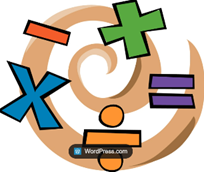Mathematics

Our school is committed to fostering an inclusive environment where every child is supported and encouraged to achieve their full potential. We believe that a strong foundation in mathematics is essential for students to develop critical thinking, problem-solving skills, and confidence in their abilities. By adapting our teaching methods and materials, we ensure that all children, regardless of their starting point or learning needs, have the opportunity to succeed in mathematics.
Intent
Our intent is to provide a high-quality, inclusive mathematics education that:
1. Ensures accessibility:
- Our curriculum is designed to be inclusive, catering to a wide range of learning needs and abilities. We aim to make mathematics accessible and engaging for all students, including those with special educational needs and disabilities (SEND).
2. Builds strong foundations:
- We aim to develop a deep understanding of mathematical concepts, enabling children to apply their knowledge in a variety of contexts. This foundation supports their progression through the curriculum and prepares them for future learning.
3. Promotes problem-solving and critical thinking:
- We encourage students to approach mathematical challenges with confidence, developing their problem-solving skills and ability to think critically. This is fostered through a range of activities that challenge and stretch their understanding.
4. Fosters a love of maths:
- We strive to create a positive attitude towards mathematics, making learning enjoyable and relevant. By celebrating success and progress, we aim to build each child’s confidence and enthusiasm for the subject.
5. Adapts to individual needs:
- Recognising the diverse needs of our students, we adapt our teaching methods and resources to ensure every child can access the curriculum and succeed. This includes differentiation, targeted interventions, and the use of various resources and tools to support learning.
Implementation
To achieve our intent, we implement the following strategies:
1. Curriculum structure:
- Our maths curriculum is based on the White Rose Maths framework, providing a structured approach to learning that builds progressively from Early Years through to the end of Key Stage 2. The framework is supplemented with a variety of resources and teaching strategies to meet the diverse needs of our students.
2. Differentiated instruction:
- Lessons are carefully planned to include tasks that cater to varying levels of ability within the classroom. We use formative assessment to identify gaps in understanding and provide targeted support where necessary.
- We employ a range of strategies, including concrete-pictorial-abstract (CPA) approaches, manipulatives, and visual aids to ensure all students can grasp key concepts.
3. Inclusion of SEND and EAL Students:
- We work closely with our SEND coordinator to tailor lessons that meet the needs of all learners. This includes using specific resources, providing additional adult support, and adapting tasks to ensure every child can participate and progress.
4. Use of technology and resources:
- Technology is used within our maths teaching, using tools such as interactive whiteboards, math software, and online resources to enhance learning and engagement.
- We draw upon a variety of resources beyond White Rose Maths, including problem-solving activities, games, and real-life contexts, to deepen understanding and make learning enjoyable.
5. Professional development:
- Ongoing professional development ensures that our teachers are well-equipped to deliver high-quality maths instruction. This includes training in new teaching methods, sharing best practices, and regular collaboration among staff to discuss strategies for supporting all learners.
6. Parental involvement:
- We engage parents in their children's maths education through workshops, regular updates, and home learning activities. This partnership helps reinforce learning and provides support for children outside of the classroom.
Impact
The impact of our maths curriculum is measured through:
1. Student progress and achievement:
- All students, regardless of their starting point, make good progress in mathematics. This is evidenced by regular assessments, including formative assessments, summative assessments, and end-of-key-stage results.
- We closely monitor the progress of SEND, EAL, and other vulnerable groups, ensuring that interventions are effective and that these students are achieving their potential.
2. Confidence and engagement:
- Students demonstrate confidence in their mathematical abilities, approaching challenges with a positive mindset. This is reflected in their willingness to participate in lessons, ask questions, and tackle complex problems.
3. Breadth and depth of understanding:
- Our students develop a deep understanding of mathematical concepts, which they can apply in a variety of contexts. This depth of understanding prepares them for the next stages of their education and helps them make connections across the curriculum.
4. Enjoyment and enthusiasm for maths:
- We see high levels of enjoyment and enthusiasm for maths among our students. This is evident in their active participation in lessons, their excitement for maths-related activities, and their positive attitudes towards the subject.
5. Preparation for future learning:
- By building a strong foundation in maths, we prepare our students for future success, not only in mathematics but across all areas of their education. Our aim is to equip them with the skills and knowledge they need to thrive in secondary school and beyond.
6. Inclusive learning environment:
- Our inclusive approach ensures that all students feel valued and supported in their learning. We regularly review our practices to ensure that we are meeting the needs of all children and continuously strive to improve our provision.
This Intent, implementation, and impact document reflects our commitment to providing an inclusive, high-quality maths education that empowers every child to achieve their best. By focusing on individual needs, fostering a love of learning, and building strong foundations, we aim to equip our students with the skills and confidence they need to succeed in mathematics and beyond.
